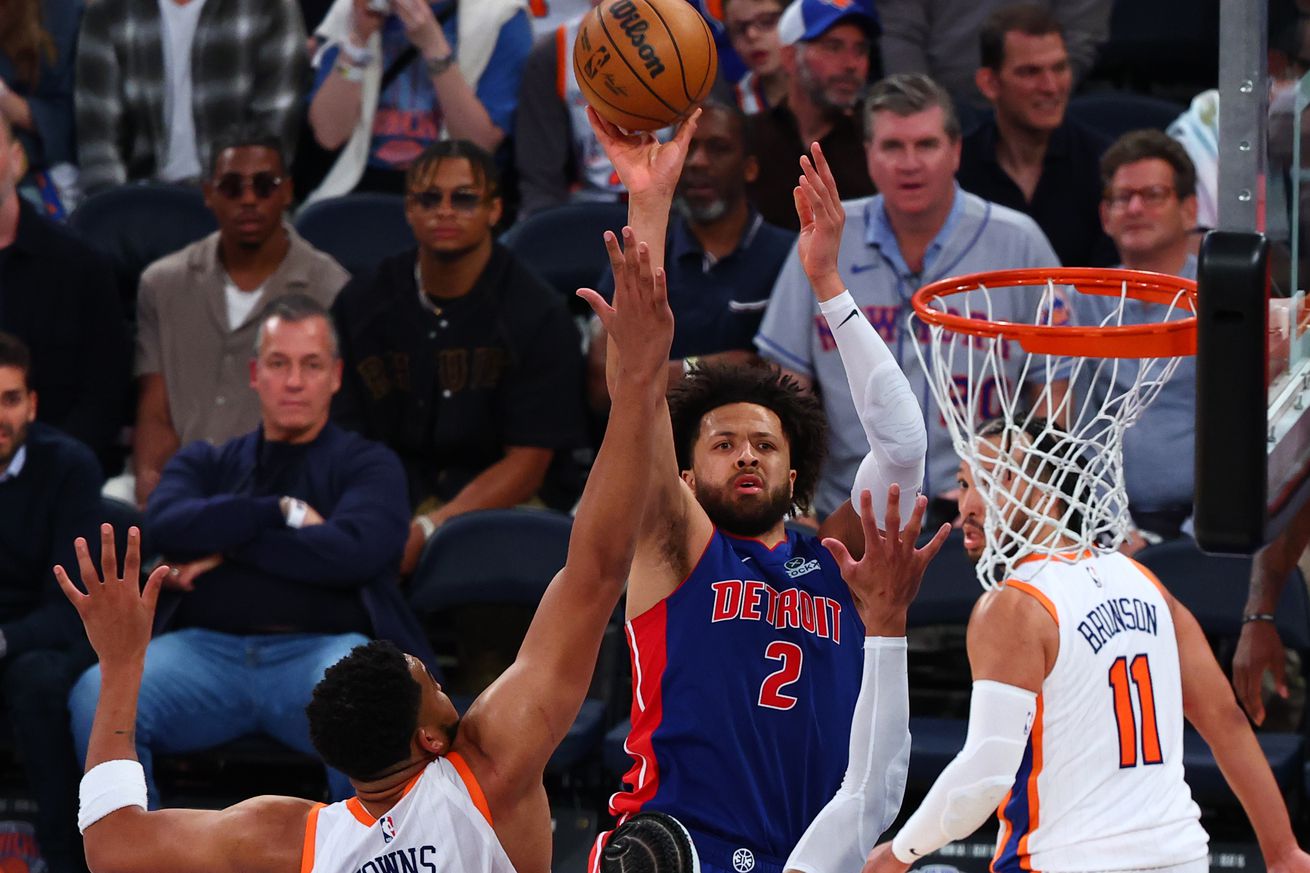
Hint: It’s not the timeout fiasco
The loss on Tuesday stung.
It was an opportunity to wrap up a series against a feisty opponent at home and give yourselves ample rest ahead of a second-round matchup with the reigning champions. It would have also been the first series-clincher at home since 1999.
For many reasons, they lost the game. They started extremely slow on offense, Jalen Brunson had his worst game of the series, and they continued to get nothing from their bench.
There were two key narratives, however, for the main culprit after the game. While both are reasonable critiques, they’re not what I would argue.
The Knicks missed 11 free throws in Game 5 (10 if you want to not count the intentional miss). That’s really bad in a three-point defeat. As much as I was on the verge of smashing my TV with every missed free throw, it wasn’t what did them in.
While the unintentional missed FT by Deuce McBride at the end was inexcusable, the others didn’t impact the outcome as much. Detroit missed ten free throws of their own, going 26-for-36. While the Knicks absolutely could’ve shot better, the same could’ve been said for the Pistons. Still, it’d be nice if the several 80% shooters on the team could make them.
The second narrative has been the more popular one, the timeout fiasco.
“Stood there waiting to get in” pic.twitter.com/9QmeRqeKyc
— New York Basketball (@NBA_NewYork) April 30, 2025
Jalen Brunson turned an ankle, and Josh Hart banged… something in a span of 15 seconds late in the game. With three minutes to go, Hart wasn’t able to get up, and the Knicks were forced to burn their second-to-last timeout. Brunson and Hart were removed, but returned to the scorer’s table with 1:45 to go. Tom Thibodeau didn’t want to use his last challenge and hoped for a stoppage to get them back in.
The stoppage didn’t come. Thibs was forced to use the final timeout with 27 seconds left and a six-point deficit. By that point, the game was all but over.
I might be in the minority, but I didn’t hate the timeout strategy. The earliest they could get Brunson or Hart back in would’ve been with 1:30-ish left and a six-point deficit, but how much does that do? With no timeouts, the Knicks basically have to dig themselves out of the hole and not rely on a free-throw battle. As we saw when the Knicks made the Pistons sweat late, the lack of a timeout led to McBride being fouled up 3.
And how sure are we that the Knicks can get there? Their best player and closer is hobbled and can barely run. If he (or Hart) goes down again, there’s no timeout left. As much as it sucked to see Cam Payne throw up bad floaters in situations he shouldn’t be close to the floor, the Knicks’ hands were tied. Fred Katz voiced this much in his article yesterday.
Really, the NBA needs to consider adopting rules that every other major league has to not punish teams for their players getting injured. The NFL and CFB do not charge timeouts (unless it’s in the last two minutes to avoid diving) for injuries and merely stop the game after a play. The NHL stops play as soon as the team of the injured skater touches the puck.
There’s no reason why the NBA should force a team to use a timeout or foul while over the limit to not play 4-on-5. It’s ridiculous. They could’ve blown the whistle after Hart wasn’t moving for ten seconds, and the Knicks were clearly waiting for him.
But whatever, what was the real reason they lost?
The real reason the Knicks lost was their abhorrent pick-and-roll defense late in the game.
It started with 4:17 left. Cade Cunningham hadn’t been able to do much all night aside from some nice lobs. The Knicks do what they’ve done all night, with Brunson blitzing Cunningham to allow Anunoby time to recover from the screen. The issue was that Brunson left Cade way too early, surrendering a backbreaking triple.
In the possession that led to the Hart injury, Anunoby was again screened. However, probably due to Brunson tweaking his ankle, he doesn’t switch or even make an attempt to stop Cade.
What happens as a result is Cunningham having a wide open lane that is filled by both Hart and Towns out of desperation. While they successfully force a miss, it allows Jalen Duren to clean it up with ease. Poor P&R defense led to overhelping and an offensive rebound for a basket.
With just over 2:30 left, Cunningham makes a really nice play, baiting OG into thinking he’s going to use the screen before driving into the paint. With Anunoby off to the side, the Knicks once again overhelp to deny the bucket.
Ultimately, I have no issue with Towns specifically. The issue was OG rotating too far under the basket and not putting a body on Duren, who once again cleaned up a miss with a putback layup. That’s just a boneheaded move in a play where he wasn’t there to contest.
Drop coverage reared its ugly head on the next possession, as McBride got caught on the screen and KAT is put in action, which predictably leads to an easy floater:
Four very troubling possessions. In my estimation, the Knicks have done a pretty good job against Cunningham pick-and-rolls this series. Cunningham is averaging 14.4 P&R possessions per game and they are leading to a mediocre 0.93 points per possession. For comparison, Brunson’s P&R is averaging 1.04 on his. Now, Cade was also pretty bleh in the regular season on these, but the point remains.
They’ve done a good job for the most part, but the defensive breakdown on the action that’s been run repeatedly in this series was the biggest culprit for the loss.
Let’s hope they fix it before Game 6.